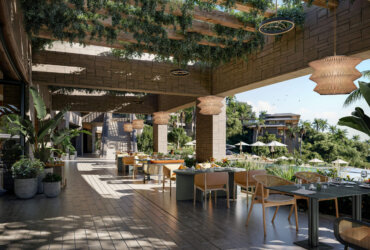Has there ever been a more appropriately named horse than Rich Strike who overcame 80-1 odds two weekends ago to win the 148th Kentucky Derby? Is it time for the meetings and events industry to experience its own “rich strike” …?
Not only did he stun the world of horseracing and its high-rollers, high-end bourbon drinkers, and high-over-the-top ladies’ headwear, Rich Strike told a wild and most improbable tale in his run for the roses. Amazingly, he only gained entry to the field the day before the race when a previous qualifier was scratched, his trainer saying simply, “He just wasn’t ready.” The call to Rich Strike’s owner came approximately 30 seconds before Derby officials intended to lock the field of 20 horses.
Even more amazing is the chestnut colt had only won two races previously, both on horseracing’s less prestigious circuit. Had you placed a $2 wager on Rich Strike in the Derby, you would have cashed your betting stub for $163.60, the second-highest payout in the event’s century-and-a-half history. [And as we all know, serious gamblers place bets a lot higher than a mere two bucks.]
Before I get to my point, let me take the amazing factor one level higher. In a field of three-year-old thoroughbreds that often sell for dollar amounts measured in the millions, Rich Strike was purchased last fall by owner Rick Dawson for a mere $30,000 and returned the favor by earning his owner $1.86 million in the course of two exciting minutes a couple of Saturdays ago. That’s a rather tidy ROI, in my opinion.
Meanwhile, Rich Strike’s trainer, Eric Reed, nearly stepped away from horse racing five years ago after his Lexington, KY barn caught fire, and he lost nearly two dozen horses. Friends traveled from near and far to be with Reed the morning after the tragedy and lifted him up, encouraging him to persevere. “I just decided I wasn’t going to let it take me out,” he said.
Everything about this story is remarkable and inspiring.
If an outta-nowhere longshot, purchased on the cheap less than a year ago, slips into horseracing’s most prestigious event at the last minute and somehow finds a way to nose ahead of the field in the closing seconds [the track announcer never even mentioned Rich Strike’s name until the final stretch], takes a bite out of his much costlier competition then chomps playfully at the backside of the pony guiding him to the Winner’s Circle, and delivers a truly “rich strike” of great fortune to his owner, who’s to say we don’t all have our own personal “rich strike” on its way?
Where have all the service folks gone?
Earlier this month, the U.S. Bureau of Labor Statistics released the latest seasonally adjusted employment numbers for the 14 largest business sectors [February 2020 to May 2022]. There was positive employment growth in professional and business services, transportation and warehousing, retail, financial, information and construction. Meanwhile, jobs continue to lag pre-pandemic levels in utilities, manufacturing, wholesale trade, mining and logging, education and health services, government, and a category called “other services.” Eight key business sectors are still playing catch-up when it comes to fielding a full workforce.
Dead last at No.14 was leisure and hospitality, which is upside down by a whoppin’ 1.4 million jobs, an 8.5% lag compared to February 2020 stats. No wonder there’s routinely slow service in restaurants, hotels, and travel.
For those of us living in the world of meetings and events – as a planner or a client — these numbers are no surprise. Plain and simple, good service is in limited supply, even more so when you’re used to receiving excellent service. These days, finding awesome workers would feel like a personal “rich strike.” Some of this is due to workplace holdouts with lingering concerns about the virus while a lot of it is pegged to the fact fewer and fewer Americans want to work if they can find other ways to subsidize their lifestyle.
Great Service + Flawless Execution + Fair Price = Client Expectation
Meetings and event professionals are all painfully aware of this current reality, but the fact remains companies are quickly getting back into the rhythm of regular, face-to-face programs and their expectations of excellent service and flawless execution at a fair price are still quite reasonable. What that means is that it’s up to planners to do what it takes to deliver on clients’ rightful expectations, regardless of circumstances.
Another complicating factor is that everything costs more. What was a fair price in 2019 is a bargain-basement deal compared to pricing levels today. According to the airline industry stats released yesterday, hotel rates are higher, and airline tickets cost 33.3% more now versus May 2021. Toss in a shortage of commercial pilots [the Bureau of Labor Statistics predicts, over the next eight years, there will be a need to add 14,500 commercial pilots] and delayed or cancelled flights have become more common than ever. All this makes the planner’s job more demanding than ever as they scramble to meet and exceed client expectations.
No doubt the pendulum will eventually find its balance and we’ll have access to more available workers who take pride in what they do. Fingers crossed that supply-and-demand will do its thing and we’ll see more reasonable pricing, and let’s all hope there’s a new generation of pilots on the horizon. Hang in there, planners and clients, brighter days lie ahead.
Patience is more of a virtue than ever before.
In the meantime, we really have no choice but to adjust our expectations [unless you enjoy frustration and impatience]. Rule No.1 in 2022 is to be eminently patient. For myriad reasons, things just take longer these days, so allow more time for the planning process to play out. It wasn’t too long ago when a hotel salesperson basically whipped out a contract on the spot once you’d made your decision on a property. Then the pandemic hit and the process slowed to a 7-10-day process. In 2022, contracts are now taking, on average, 2.5-3 weeks to turn around.
Another thing to keep in mind is competition for space and preferred properties is at a premium. With two years of pent-up energy [and virtually no fully F2F meetings and events], companies are eager to get back in the saddle and return to live gatherings that include receptions, business sessions, breakouts, and free-time activities. You know, the good ol’ days.
This has caused unusually high demand in the hotel industry and trying to secure space is like trying to find your dream home in today’s equally white-hot real estate market. Many companies are working to get ahead of the game, in some cases way ahead. We are currently doing site research for a program planned for … 2026!
My final bit of advice is to align with reputable planners and planning companies. Doing so ensures you’ll be partnered with professionals who have your best interests in mind in all they do. They will advocate for you and strive to design, plan, and execute the program you envision at the fairest value. That would indeed be your own personal “rich strike”!
Cheers,
Kenneth Jones






